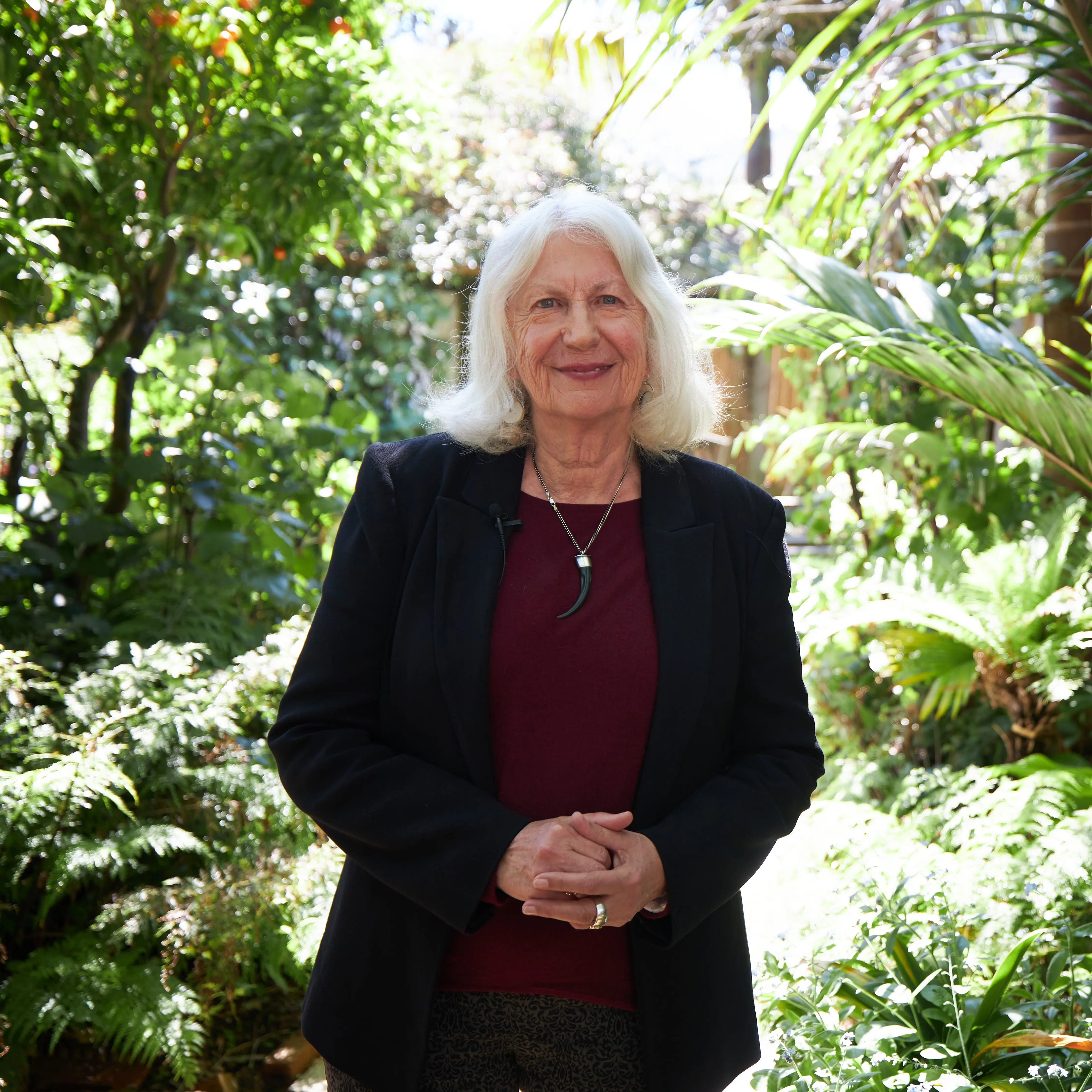Dame Anne Salmond DBE FRSNZ
Curiosity will take you a long way.
Dame Anne Salmond knows this all too well, as at the age of 16 she plunged into learning Te Reo Māori, with very little knowledge but a burning curiosity. It was the beginning of a life-long love affair with Maori culture, language and history.
“I was somebody who was a novice, and I didn’t know much but I had this kind of curiosity and then when I did get engaged with some of these people I just thought ‘ahhhh, you know, I’m home’. I’ve found the place I really love being in and its endlessly fascinating,” she has said.
Salmond’s long association with the University of Auckland – where she is currently a highly acclaimed Distinguished Professor of Anthropology and Māori Studies – started early on. After returning from an American Field Service Scholarship in her teens, Salmond discovered she could only learn Māori through the anthropology department. This led to a lifelong passion for the subject.
The multi-talented Salmond has had a lifelong engagement with te ao Māori, working alongside kuia and kaumātua and writing numerous papers, reports and prize-winning books. Her books on Captain Cook have been described as “ground-breaking” and “masterly”. The books have won her acclaim as well as prizes such as Book of Year (Eruera: The Teachings of a Māori Elder, 1981) and the Montana Medal for Non-Fiction (The Trial of the Cannibal Dog: Captain Cook in the South Seas, 2004).
Salmond has also contributed substantial submissions to The Waitangi Tribunal, was named Kiwibank New Zealander of the Year in 2013, and hosted the Artefact documentary series for Māori TV.
Salmond’s passions have led her to roles across diverse sectors, including the social sciences, and conservation. She is highly sought after as a patron or chairperson for community groups or in governance roles. She is a former vice president of the Royal Society of New Zealand, and was the first social scientist to be awarded the Rutherford Medal, New Zealand’s top scientific prize.
Salmond has also worn many hats and had a range of public offices, including as a key founding board member of the Museum of New Zealand Te Papa Tongarewa in 1992, and as chairperson of the New Zealand Historic Places Trust.
Her list of achievements seems exhaustive, yet she remains excited about what the future will bring.
“For me life’s a journey and I never know what’s going to be around the corner. There are always surprises,” she has said.
Another of her passions is the environment, and as with anthropology and Māori culture and history, she has excelled in writing, research and in practical work in the fields of conservation and preservation.
Salmond has written about climate change, the restoration of rivers, forests and the ocean, and has an international reputation as an environmental thinker. She has delivered highly regarded keynote addresses on the environment in Bergen, Vancouver and Berlin, and on the relationship between people and the sea in Oslo, Cambridge and Munich. Her passion for “these islands” as she has called New Zealand runs deep, as her years of research and work have shown.
Salmond’s belief is that great leaders are outwardly focused, and work with others to achieve a purpose.
“What I love is working with teams. I like having something that I really care about and working with gifted, exciting, committed people to see if we can make a difference,” she has said.
Along with her husband Jeremy she established the Waikereru Ecosanctuary, a major ecological restoration project in 1999. This displayed what she herself says a great leader needs: a sense of adventure.
Salmond described how as a child in Gisborne she had swum in the river there, and when the couple saw a for sale sign on what had been grazing land, they made a spontaneous decision.
“We bought 120 hectares. We didn’t even know what for. It was just one of those things. It was a bit like falling in love, you know, you don’t do it on purpose, it just happens,” she has said.
The ecosanctuary is now a haven for native birds, plants and animals, just 9km from Gisborne city.
So, the early curiosity of the teenage Salmond continues, with the respected anthropologist, environmentalist and author noting that life is a journey, complete with surprises.
“There’s always unfinished business, and there’s always another adventure around the corner.”


